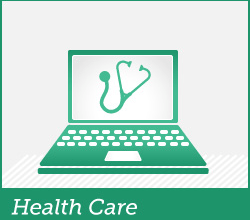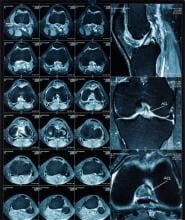Technology to lower costs rather than accelerate them. Smart phones to increase physician and other providers’ productivity. Fewer primary care physicians but more involvement by nurse practioneers and others. And increasing appreciation of the value of integrative medicine. These are but a few of the disruptive changes in care delivery that are coming.
Technology to lower costs rather than accelerate them. Smart phones to increase physician and other providers’ productivity. Fewer primary care physicians but more involvement by nurse practioneers and others. And increasing appreciation of the value of integrative medicine. These are but a few of the disruptive changes in care delivery that are coming.
Recently, I have posted concepts on Healthworks Collective of how the health care delivery system will change in coming years – quite unrelated to reform – and how these changes will often be disruptive, transformative or both. Here are a few more.
We think of new technologies as exacerbating health care costs. But it is also quite correct to look to technology to reduce costs or at least slow the growth of expenditures. It is time to look for a new value proposition for technology. Today and tomorrow technology needs to help health care professionals to 1) compensate for shortages, 2) enhance their responsiveness to patients 3) control costs and 4) improve quality and safety.
Smart phones with wireless connectivity and multiple apps are a good example of technology to assist, compensate, enhance responsiveness and improve quality. Increasingly, physicians are becoming very reliant on their phones as a shortcut to knowledge, to stay well informed, to argue and debate among themselves and perform many other functions.
Robotics can likewise benefit all four parameters. A good example is how robots have made the hospital pharmacy more efficient while substantially safer. One robot selects pills via bar code; another prepares intravenous medications and solutions more accurately then a technician and a third transports medications to the nursing unit using wireless technology – sort of like R2D2. This frees up the pharmacist to do what he or she does best such as watching for drug-drug interactions, proper dosing, and critical higher order functions.
But the coming changes are not just in technology but in the distribution and work of providers. With shortages of physicians, especially primary care physicians, appropriate integration of nurse practioneers and physician assistants can not only partially compensate but provide quality interaction with patients, augment preventive programs and enhance care coordination for those with chronic illnesses. And although there is considerable controversy as to appropriate scope of practice, it is certainly clear that the interaction of PCPs with NPs and PAs can enhance the totality of patient care. Similarly, expect to see more mental health delivered by psychologists and social workers; visual care by optometrists; and hearing care by audiologists.
Consumers (patients) will press for and expect a more integrative approach from their PCP and other providers. Patients today increasingly search out and use practioneers of acupuncture, massage, chiropractic, yoga, mind body techniques and other complementary medical modalities. More and more medical students are graduating with at least some understanding and training in the use of these approaches. And the acceptance by physicians is growing, albeit slowly in many cases.
Integrative medicine means more attention to the whole person – family history, social situation, work environment, and how all of these plus stress, eating smoking and drugs preferences interact with the patient’s illnesses. A “prescription” for high cholesterol may still include a statin but it might well also include a trip to a nutritionist, a personal trainer, a program for stress reduction , etc. The end result is better medicine yet completely coordinated by the primary care physician.
Health care delivery is transforming. It will come in fits and starts but it is and will continue to change. Hopefully most of the changes will be for the betterment of patients and providers alike.








